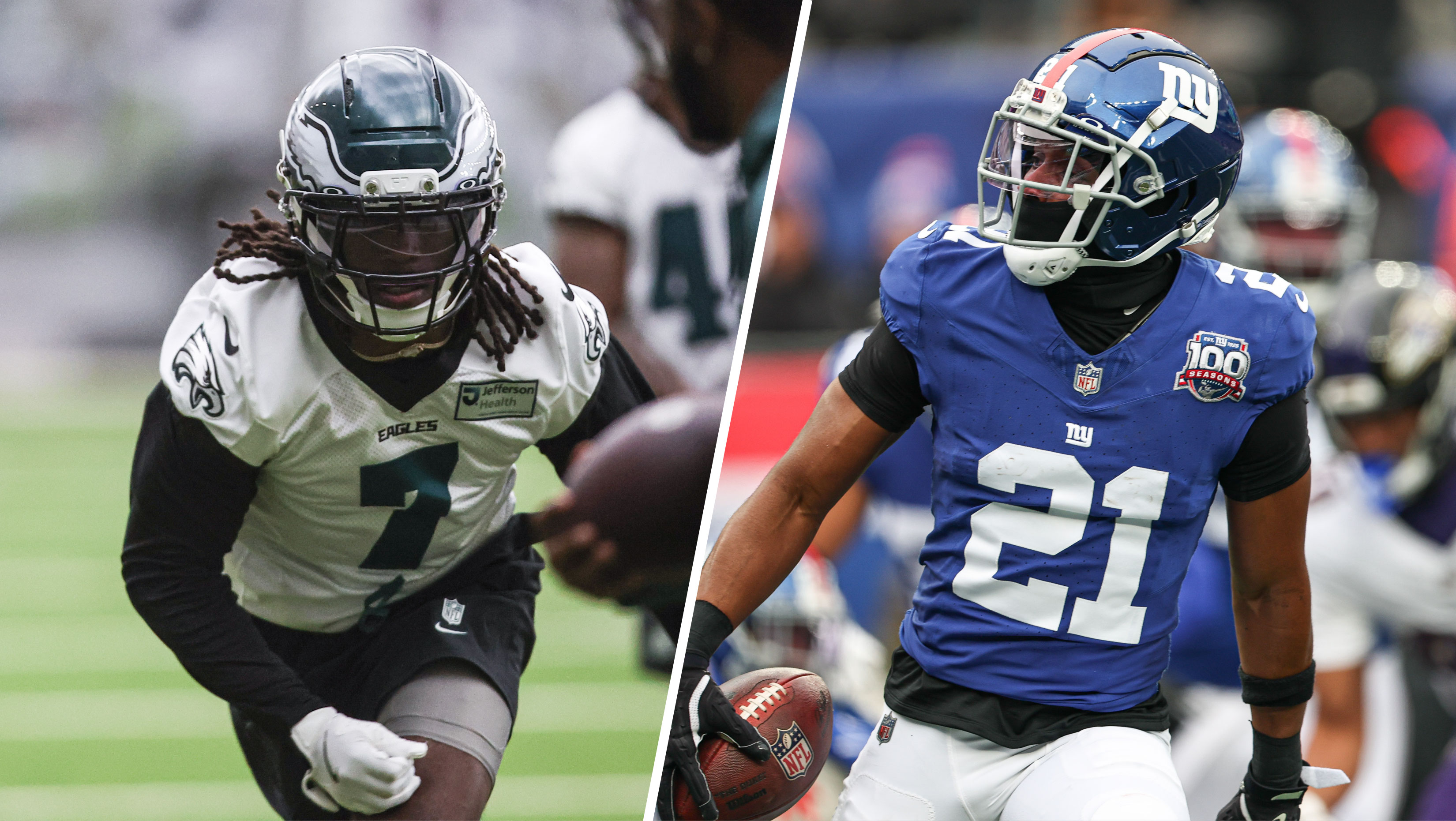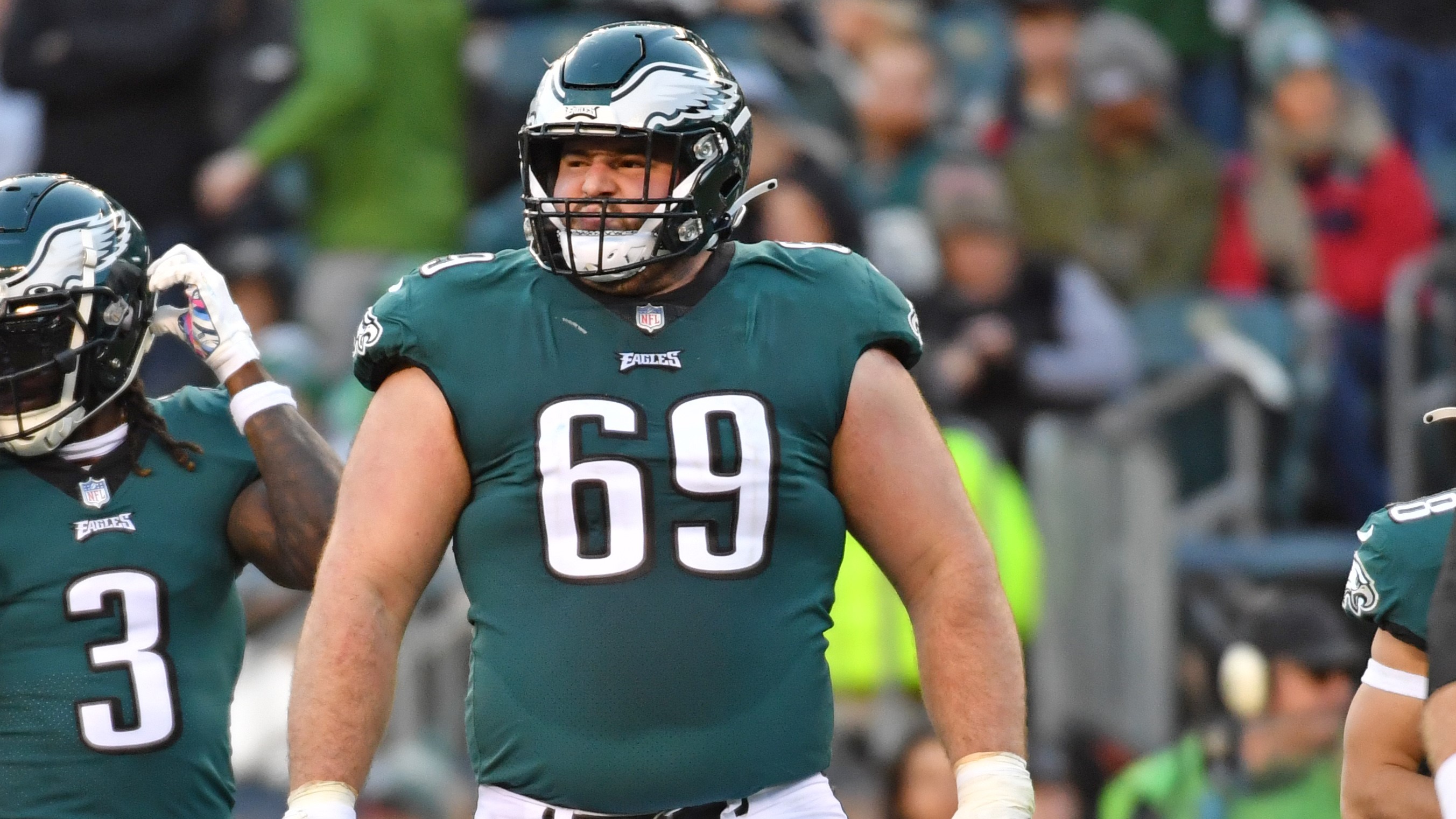
One thing Andy Reid was spot on about during his long tenure with the Eagles was the importance of building around both lines.
Big Red always made the offensive and defensive lines a priority, and during the Eagles’ stretch of deep playoff runs — from 2000 through 2009 — the O-line was anchored by guys like Jon Runyan, Tra Thomas, Jermane Mayberry and Todd Herremans and the D-line by Corey Simon, Trent Cole, Mike Patterson and Hugh Douglas.
During that 10-year stretch, the Eagles had the most wins in the NFC and the third-most wins in the NFL, and the one constant during that stretch was solid line play.
Donovan McNabb was very good when healthy most of those seasons, and the Eagles always had good running backs and corners, but the heart of those teams was up front.
Just look at how Big Red drafted. Eight of his 11 first-round picks were linemen. After taking McNabb in 1999, all six of Reid's picks in the first half of the first round were linemen.
They obviously didn’t all work out, but Reid was committed to both lines, and Howie Roseman, then a young, rising personnel executive, was paying attention.
The Eagles have done a lot of things differently in the five years since Reid's final season here, but one thing Doug Pederson and Roseman believe in is building around the lines, and it sure paid off last year.
NFL
According to figures on salary cap website Spotrac, the Eagles in 2017 were the only team ranked among the top five in the NFL in both offensive line and defensive line spending.
And the only team that had a parade in February.
And they’re only going to spend more this year.
The Eagles will spend 22.36 percent of their 2018 cap money on the offensive line, fourth most in the league, and 28.84 percent to the defensive line, fifth most.
That’s more than half their 2018 payroll on the big guys up front.
The Jets — sixth in O-line spending, 10th in D-line — are the only other team in the top 10 in both.
Seven of the Eagles’ 10 highest-paid players last year were linemen, as are eight of their 13 projected highest-paid players in 2018.
And five of those guys — Fletcher Cox, Brandon Graham, Jason Kelce, Vinny Curry and Jason Peters — are actually holdovers from the Reid era.
Think of them as Reid’s parting gifts to the 2017 championship team.
Creating a Super Bowl roster was a complicated process for Roseman, and to be able to make this sort of financial commitment to the two lines means you just don’t have much money left for everything else.
The only way to make that work is to build with cheap labor elsewhere.
And that means younger players on bargain-basement rookie contracts, cheap but productive quarterbacks and low-round picks and undrafted players with cheapo contracts excelling.
It means drafting well and making exceptional free-agent decisions without overspending.
It’s a crazy juggling act, and Roseman juggled all those things magnificentely last year.
In fact, according to Spotrac’s data, the two lines are the Eagles' only positional groups ranked even among the top 15 in the NFL.
The secondary and QB positions rank 16th in cap allocations, tight end 18th, running back 21st, wide receiver 27th, linebacker 31st and special teams 32nd.
These numbers are all based on the 53 highest-paid players currently under contract, so they will change slightly once the final roster is set, but they won’t change much.
The Eagles were very good in a lot of areas last year — really, in every area — but their offensive line was the best in football and the best in Eagles history, and the defensive line was easily one of the two- or three-best in football.
Everything the Eagles did, everything they accomplished, started up front.
Put Peters back on the O-line and add Haloti Ngata and Michael Bennett to the D-line with an increased role for Derek Barnett, and both lines could conceivably be even better this year.
It’s going to get harder for Roseman to keep paying the Eagles’ linemen the way he has. Once Carson Wentz signs his next contract, the Eagles’ entire salary cap balance will change.
Those $25 million annual cap hits for one guy have a tendency to make roster decisions way more challenging.
So it will be tricky for the Eagles to re-sign Graham. He wants a fortune, and he deserves a fortune.
But even if Roseman can’t get that done, Barnett has three more years on his rookie deal, and that’s the key to making this whole thing work.
You can’t re-sign everybody, so if you want to remain elite, you have to draft well so you can replace the people you invariably lose.
You lose Patrick Robinson, you have Sidney Jones waiting. You lose LeGarrette Blount, there’s Corey Clement ready to go. You lose Mychal Kendricks, you hope a Nate Gerry can contribute. Trey Burton leaves, and Dallas Goedert is cheaper and better.
You get what you pay for. And the Eagles right now are paying for the best in the business.


